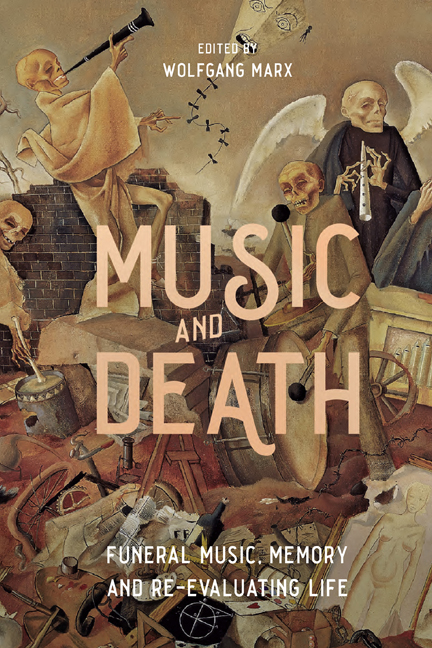5 - Manifestations of Death in the Music of Johannes Brahms
Published online by Cambridge University Press: 12 January 2024
Summary
Throughout his life, Brahms was preoccupied with the question of how humanity could come to terms with the harshness of reality and humankind's ultimate fate – death. During the period he conducted the Hamburger Frauenchor for several years from 1859 onward, the number of works that he programmed concerning death is notable, including the Bach cantatas Christ lag in Todesbanden and Ich hatte viel Bekümmernis and Schumann's Requiem für Mignon. Brahms set both sacred and secular texts related to death from his earliest published works, including his setting of ‘Come Away, Death’ from Shakespeare's Twelfth Night as the second of the Vier Gesänge, op. 17, and Begräbnisgesang for chorus and orchestra, op. 13. An anonymous reviewer of Brahms’ setting of this old German song on a text by Michael Weisse wrote presciently that his elegiac oeuvre ‘transfigure[s] earthly sorrow into eternal joy and hope’.
In the 1870s and 1880s, Brahms wrote a number of choral works based on the secular texts of a group of humanist writers who were active in Germany at the turn of the nineteenth century: Friedrich Schiller (1759–1805), Johann Wolfgang von Goethe (1749–1832), and Friedrich Holderlin (1770– 1843). These compositions, Schicksalslied, op. 53, Nänie, op. 82, and Gesang der Parzen, op. 89, are at the heart of a group of works that espouse a common aesthetic outlook, and which I refer to as ‘Brahms’ Elegies’. Whereas many of Brahms’ instrumental compositions might be described as elegiac, these three one-movement works for choir and orchestra can be distinguished from the larger group on account of the nature of their poetic texts. All three are concerned with the legends of Classical Antiquity as mediated through turn-ofthe- century German Idealist poetry; all three address the gulf that is perceived to exist between the divine and the earthly realms; and all three confront the subject of loss, expressed in a distinctive poetic form in each of these three poems. In their own secular way, each of these three works deals with the transience of life and the inevitability of death.
- Type
- Chapter
- Information
- Music and DeathFuneral Music, Memory and Re-Evaluating Life, pp. 93 - 109Publisher: Boydell & BrewerPrint publication year: 2023

